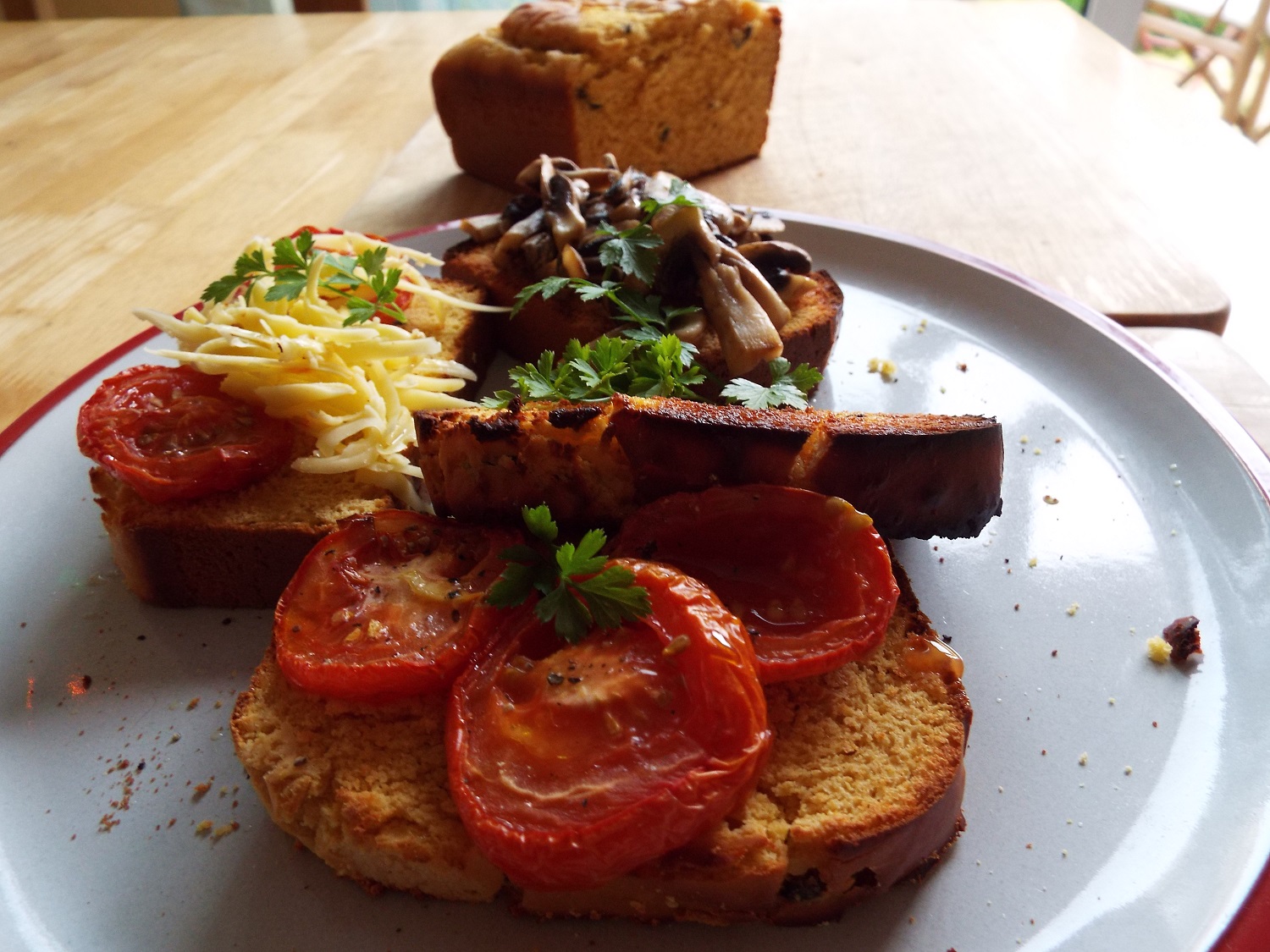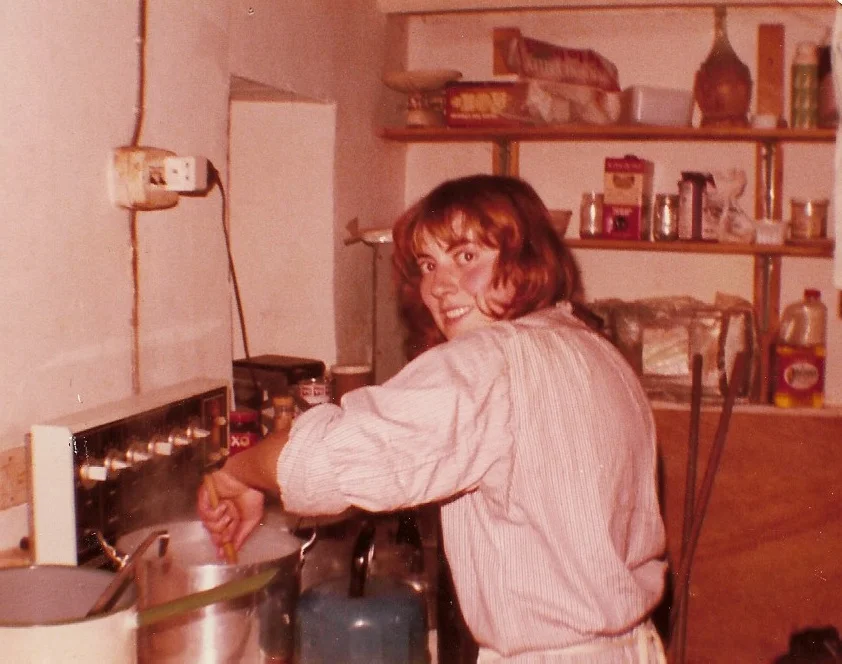I’m having a look at the ‘things on toast’ genre. Basic though they may be, things on toast (or dietary alternatives) can be pretty cheap, flexible and easy to make. I’ve always got one eye on a key market - students, volunteers, and those having to cook during fieldwork trips on tight and diminishing budgets in challenging conditions.
Read moreAre 30p Meals Really Possible, Including Hidden Costs? No, Not Really
Mmmmm. Assorted cheap ingredients that parliamentarians don’t eat. Students and fieldwork volunteers might though. I ate them so you don’t have to. Although you probably do have to, because we’re all broke now.
Food is political. ‘Lee’s 30p meals’ still occasionally trends on Twitter. Sometimes it’s ‘Lee’s 10p meals’. Lee Anderson - quite a big fella himself - is the daftie Conservative MP who decided that the British people could live on meals that cost just 30 pennies per person. Apparently he saw it done at a food bank kitchen - completely ignoring the facts of food donations, the massive aconomies of scale and the energy costs - and now he has visions of the impoverished doing the same. Student or budget setter, cook or parent, this is the new narrative of aspiration. Trouble is, ‘30p Lee’ is an idiot.
Read morePickled Vegetables and Coleslaw - Low carb & Healthy
Whether preparing food on a dig, during other fieldwork activities, or at home, chopped and dressed vegetables are a flexible dish, simple to make, easy to store in tubs, and they tick all the boxes for all eating requirements - vegan, gluten-free and low-carb. Importantly, the acetic acid in the vinegar can help to avoid blood glucose 'spikes' in people with, for example, Type 2 diabetes; and the vegetables that are used are easy to store in boxes in the shade till needed by the fieldwork kitchen. Use as a side dish, as a replacement for something else (eg potatoes), a starter, or a snack.
Read moreFieldwork Food and Diabetes
All photos: Eleanor Scott
Welcome to the 2018 season of posts about inclusive fieldwork food for volunteers, students and staff on archaeological digs and fieldwork projects.
I'll be writing a lot this season about the sorts of meals that are good for fieldwork volunteers, students and staff who need a low carb diet - people who have diabetes, pre-diabetes, iatrogenic high blood glucose (eg on some thyroid treatments) or otherwise needing to monitor blood glucose levels. It's not a rare issue; and, with the rapidly changing demographic and the fee-paying expectations of archaeology volunteers and students, it's not one that is going to go away. Plus, in my view, no-one should be dissuaded from participating in fieldwork because of having a diabetic condition.
Read moreA Week of Fieldwork Recipes - Vegan, Gluten-Free And Type2-Friendly
Polenta with fruit
This blog piece is part of a series that explores the relationship between food, well-being and inclusion in the field. It focuses on 7 actual main meals that can be cooked in basic field conditions, as well as sides dishes and desserts. The key thing about these meals is that they are all vegan and gluten-free and Type2-friendly, and can be cooked in challenging conditions such as on a Dig. In other words, the Dig Cook doesn't have to be cooking lots of separate meals. It's a broad brush overview of what can be achieved, on a budget, to make sure that something that every participant in fieldwork has to do several times a day - eat - is not only physically sustaining them but also supporting their sense of well-being and belonging. It's also about making a rainbow of inclusive food that looks like you want to eat it and will be satisfied by it in a fieldwork setting.
Read moreDig Food Series: It's Vegan, Gluten-free & Type2-friendly - Prep & Store Cupboard
Gram flour loaf with black olives, toasted with tomatoes, mushrooms, vegan cheese - olive oil and parsley optional
So the pre-Dig registration questionnaires are back. Someone in the supervisory team is collating the 'dietary needs' section. They've gone quiet; finally they mutter, 'So we've got thirty meats, five vegetarians, four vegans, three gluten-frees, someone's diabetic, and Alice on Small Finds says if we ever feed her beetroot again she won't be responsible for her actions'. The Dig Cook's thinking 'We're gonna need a bigger kitchen'. The Director's thinking, 'We just can't cater for that range of needs'. The bigger kitchen is rarely possible; and the latter is really sad, and it really happens.
But it is actually possible to perform a neat trick and to make decent meals on a dig or in a fieldwork setting that are vegetarian and vegan and gluten-free and compatible with eating plans recommended for people with Type 2 diabetes. And I think it is increasingly worth knowing how do this, as an inclusive response to that pre-Dig gathering of information through the registration process. In fact, it's food that everyone can enjoy and benefit from.
Read morePlease Feed the Archaeologists (Recipes 4 All)
Dig food is dig fuel - never underestimate its importance for powering an excavation. If you're gesticulating at a massive Iron Age bank that you want to be quickly sectioned, and your workers aren't getting fed properly because they're supposedly 'fussy eaters' (e.g. vegetarian), that's not a dig - it's a shambles.
Of course conditions for cooking on digs can be difficult and cramped, with limited facilities and storage space - but it can be done, and done well. Everything pictured here was cooked in basic conditions, without food processing gadgets and measuring scales - and if you like the look of anything in a photo, the recipes are at the end of the page or they'll appear in my next blog post next week.
Read moreExcavation Challenges - Food, Fieldwork and Difference
Hazel Riley, professional archaeologist - and the best dig cook I ever knew. Castell Henllys, Pembrokeshire, early 1980s. Big dig, small kitchen.
Food is essential, food is emotional and food is political. I think that the dig director who doesn’t ‘get’ this is seriously missing a trick. It’s especially puzzling to me that there are archaeologists who can’t apparently see the connection between food, bodily autonomy and corporeality once they’re directing a dig. Food and cooking, and sharing in that process and caring about the results, are things that can bring people together – and very often a difficult fieldwork day can be made bearable through eating well and being in good company. It can be a therapeutic process. Food preparation can and should be about inclusion and not about ‘difficulty’. If well managed, food and cooking on digs can help to strip away the inaccessibility of the world (and attitudes) for many potential participants. It really isn’t that hard to do.
Read more






